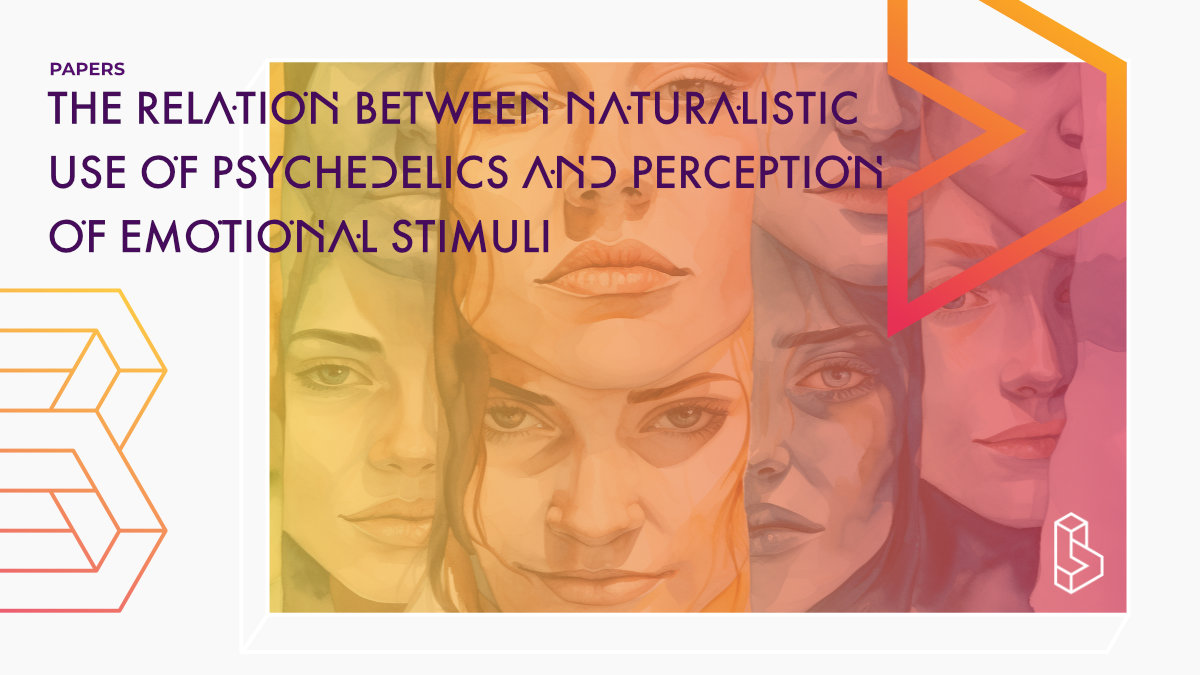This cross-sectional study (n=111) investigated neural markers associated with emotional reactivity in individuals with extensive naturalistic psychedelic use (15 or more lifetime experiences) compared to non-users. Experienced psychedelic users (n=56) exhibited significantly lower N200 amplitudes in response to fearful faces, suggesting reduced reactivity to emotionally negative stimuli at early processing stages.
Abstract of The relation between naturalistic use of psychedelics and perception of emotional stimuli: An event-related potential study comparing non-users and experienced users of classic psychedelics
“Background: Previous research has suggested that controlled administration of psychedelic substances can modulate emotional reactivity, enhancing positive and diminishing negative emotions. However, it is unclear whether similar effects are associated with using psychedelics in less-controlled naturalistic environments.
Aims: This cross-sectional study investigated the neural markers associated with the perception of emotional stimuli in individuals with extensive experience of naturalistic psychedelic use (15 or more lifetime experiences), comparing them to non-users.
Methods: Electroencephalography (EEG) signals were recorded from two groups: experienced psychedelics users (N = 56) and non-users (N = 55). Participants were presented with facial images depicting neutral or emotional expressions (anger, sadness, and happiness). Event-related potential (ERP) components were analyzed as indices of emotional reactivity.
Results: Psychedelic users were characterized by significantly lower amplitudes of the N200 component in response to fearful faces, in comparison to non-users. In addition, interaction effects between Group and Emotional expression were observed on N170 and N200 amplitudes, indicating group differences in the processing of fearful faces. However, no significant between-group differences emerged in the analysis of later ERP components associated with attention and cognitive processes (P200 and P300).
Conclusions: The results suggest that naturalistic use of psychedelics may be linked to reduced reactivity to emotionally negative stimuli at the early and automatic processing stages. Our study contributes to a better understanding of the effects related to using psychedelics in naturalistic contexts.”
Authors: Paweł Orłowski, Justyna Hobot, Anastasia Ruban, Jan Szczypiński & Michał Bola
Summary of The relation between naturalistic use of psychedelics and perception of emotional stimuli: An event-related potential study comparing non-users and experienced users of classic psychedelics
Introduction
Psychedelics, such as psilocybin, LSD, mescaline, and DMT, are psychoactive substances that can alter perception and the state of consciousness. They may also cause long-term changes in personality, mood, and well-being.
Psychedelics induce profound changes in emotional experience, often leading to intense positive emotions and mystical-like states. Specifically, psilocybin and LSD reduce the reactivity of the amygdala to negative stimuli and disrupt its functional connectivity with other emotion-related brain regions. Psychedelic substances have been shown to acutely promote goal-directed behavior toward positive cues and increase subjective vividness and neuronal activity during the recollection of positive autobiographical memories.
Find this paper
https://doi.org/10.1177/02698811231216322
Paywall | Google Scholar | Backup | 🕊
Cite this paper (APA)
Orłowski, P., Hobot, J., Ruban, A., Szczypiński, J., & Bola, M. (2023). The relation between naturalistic use of psychedelics and perception of emotional stimuli: An event-related potential study comparing non-users and experienced users of classic psychedelics. Journal of Psychopharmacology, 02698811231216322.
Study details
Topics studied
Neuroscience
Study characteristics
Observational
Bio/Neuro
Participants
111
Humans
Linked Research Papers
Notable research papers that build on or are influenced by this paper
Naturalistic use of psychedelics does not modulate processing of self-related stimuli (but it might modulate attentional mechanisms): An event-related potentials studyThis cross-sectional study (n=113) compared experienced psychedelic users (n=56) to nonusers (n=57) regarding neural responses to Self-name stimuli, known for activating self-representation. While no difference in P300 amplitude was found between users and nonusers for Self- or Target-names, users exhibited increased P300 amplitude for Other-names. Additionally, users showed a smaller increase in P300 amplitude for task-relevant stimuli compared to nonusers, suggesting potential alterations in attentional resource allocation rather than prolonged changes in self-representation due to psychedelic use.

